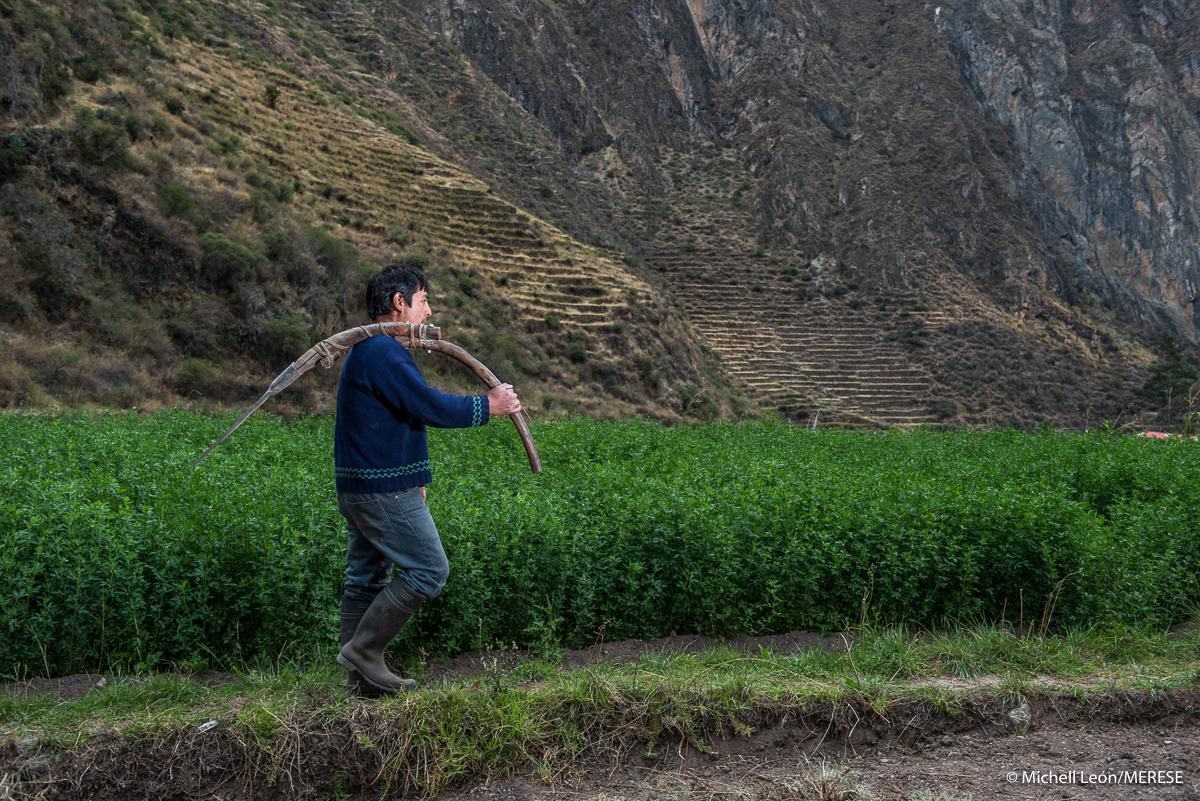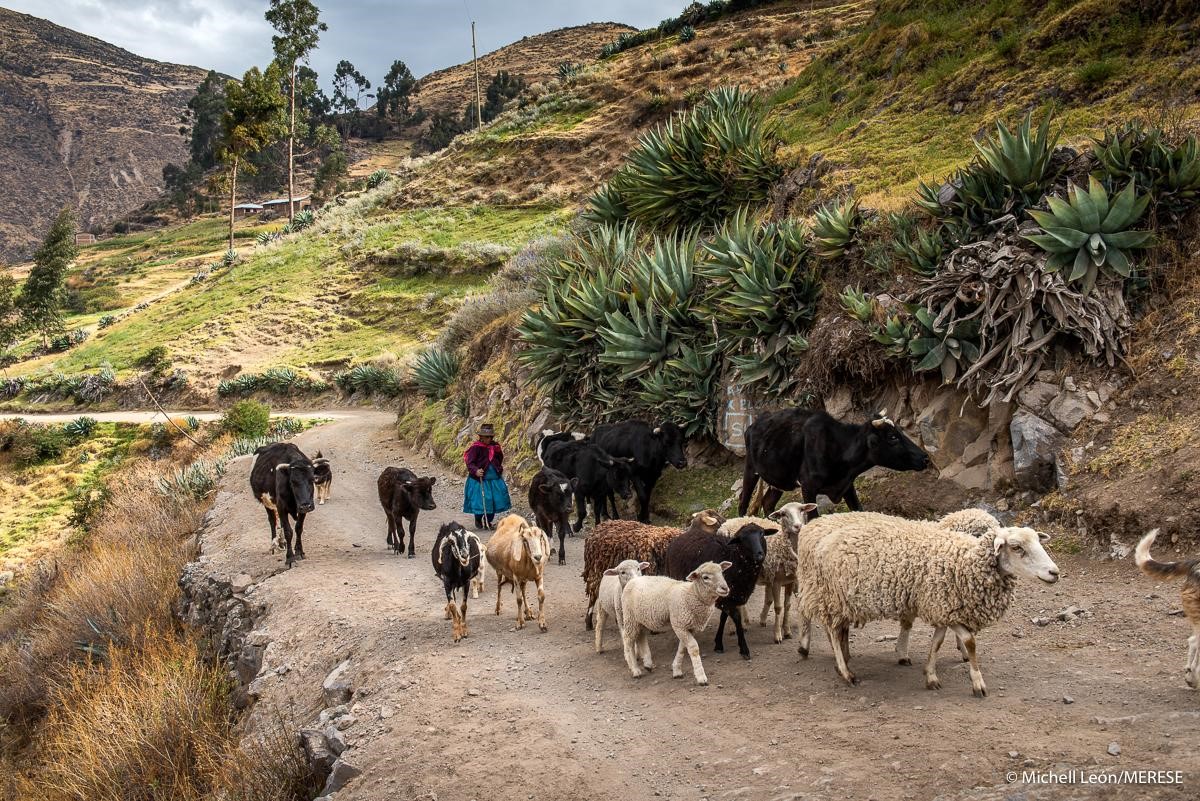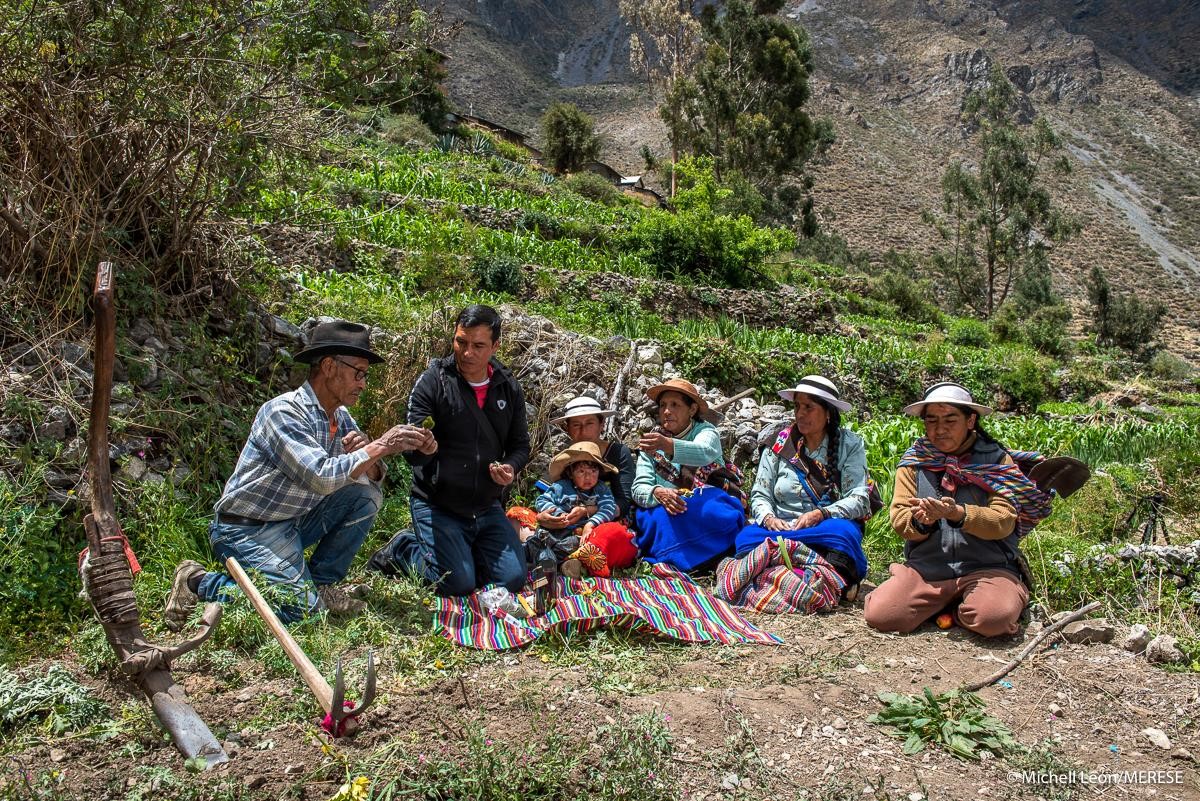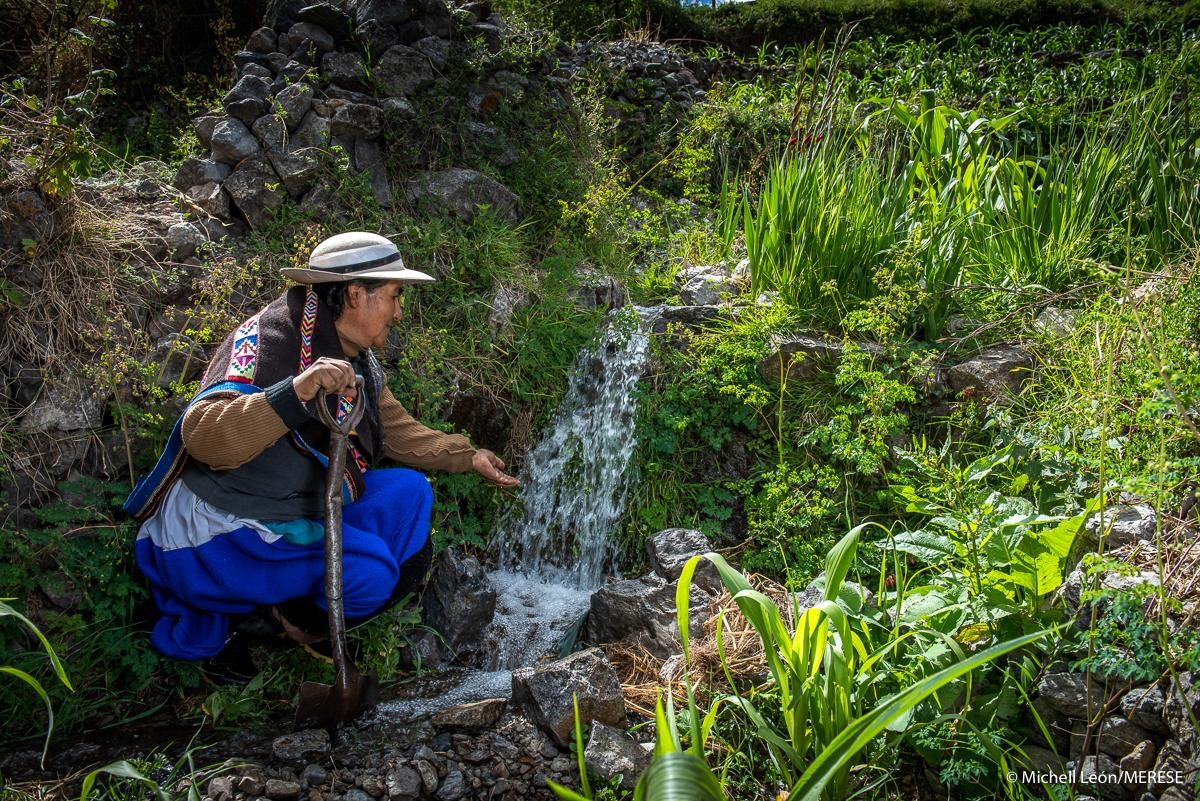 Challenges and Opportunities to Scale Up Payment for Ecosystem Services
Building capacities through South-South and Triangular cooperation for the implementation and strengthening of PES mechanisms in Costa Rica and Peru.
Challenges and Opportunities to Scale Up Payment for Ecosystem Services
Building capacities through South-South and Triangular cooperation for the implementation and strengthening of PES mechanisms in Costa Rica and Peru.

Challenges
The agriculture, forestry, fishing and tourism sectors have a major impact on our ecosystems. The unprecedented pressure on natural resources is negatively influencing the capacity of fragile biomes to continue to provide critical environmental services, such as carbon sequestration, soil regeneration and pollination. In Peru, 90 percent of the population living in the highlands rely on the use and conservation of natural resources available in their watersheds for livelihood. However, more than 10,000 hectares of their habitat are severely degraded, endangering these communities as they are not able to benefit from the ecosystem services these areas can provide.
Costa Rica faces similar challenges, and over the years it has developed a robust Payment for Ecosystem Services (PES) programme, paying up to US$30 million each year to vulnerable stakeholders that support the preservation of their local ecosystems. South-South cooperation is a powerful tool to build capacities and improve the implementation of PES initiatives, contributing to the achievement of several SDGs and national policies targeting biodiversity and climate change
Towards a Solution
Over the years Peru has established legal, institutional and operational mechanisms for the assessment of public spending on ecosystem services making it possible to generate vital environmental and economic statistics. The project, entitled “Conservation and Sustainable Use of High Andean Ecosystems of Peru through Payment for Environmental Services” (MERESE), funded by the International Fund for Agricultural Development (IFAD) and the Global Environment Facility (GEF), invested US$1.6 million to support community groups to restore and preserve nearly 15,000 hectares of native forest, grasslands and high Andean wetland habitats. Participating communal groups have strengthened their capacities to design and implement restoration and conservation programmes and to increase their incomes.
In Costa Rica, a country with more than 30 years of consolidated PES governance, programmes are now being updated according to the needs and specific requirements of beneficiaries. PES mechanisms have incorporated a political and social element, not only contributing with financial resources but also valorizing widely recognized landscapes and ecosystem services, such as watershed and biodiversity protection, scenic beauty and greenhouse gases mitigation. For instance, the valorization of such landscapes helped to establish the Sustainable Biodiversity Fund, a successful initiative that is implementing innovative financing tools, such as the Green Debit Card. For each transaction made with the Card, 2 percent of the interbank commission is transferred to the Fund and invested in initiatives targeting fragile ecosystems and their communities.
Costa Rica has been able to achieve important objectives related to the reduction in deforestation rates, recovery of forest coverage and degraded lands (SDGs 13 and 15), thus contributing to national and global goals and becoming a reference for other countries in the region. These achievements caught the attention of Peru and stimulated the beginning of an institutional dialog between the two countries, facilitated by IFAD. This dialogue has resulted in a series of technical exchanges on how to implement and improve mechanisms for payment for ecosystem services.
In total, six virtual workshops, involving 86 experts from Peru and Costa Rica, were organized during the last half of 2020, allowing participants to exchange their experiences and best practices on PES initiatives. The discussions were structured around key topics, such as legal and regulatory frameworks, financing instruments, bio-businesses and the monitoring and evaluation of PES initiatives. The main outcome of these exchanges was a road map outlining strategies for the improvement of PES programmes, and suggestions on how to strengthen integration and the design of joint initiatives between the two countries.
Early in 2021 a high-level event was organized with the participation of representatives from Costa Rica and Peru to discuss the main outcomes of the workshops with a wider audience and to further explore potential areas for collaboration. The event was an important step for the continued high positioning of PES on the agenda of both countries, and to consolidate it as an important tool to contribute to the achievement of several SDGs.
The exchanges between Costa Rica and Peru on PES have helped both countries to increase their capacities for assessing and expanding programmes and initiatives that contribute directly to SDGs 11, 13; and 15 and its targets 15.a, 15.1, 15.3, 15.4 and 15.9. Despite having been organized in a context of significant uncertainty due to the COVID-19 pandemic, and in a virtual format, the exchanges assisted the participating institutions to highlight key aspects of the sustainability and permanence of PES initiatives, underpinning the need to seek long-term commitment from stakeholders, explore innovative funding sources and ensure suitable monitoring and accountability systems.
Contact Information
Countries involved
Supported by
Implementing Entities
Project Status
Project Period
URL of the practice
Primary SDG
Primary SDG Targets
Secondary SDGs
Secondary SDG Targets
Similar Solutions
| NAME OF SOLUTION | Countries | SDG | Project Status | |
|---|---|---|---|---|
Accelerating the Transformational Shift to a Low-Carbon Economy in Mauritius Towards supplying 35 percent of the country’s energy needs with renewables by 2025 |
Costa Rica, Peru | 05 - Gender Equality 09 - Industry, Innovation and Infrastructure 13 - Climate Action | Ongoing | View Details |
Accelerator Labs Network Following collective intelligence methods to address emerging sustainability challenges and the growing demand for local solutions |
Costa Rica, Peru | 08 - Decent Work and Economic Growth 13 - Climate Action | Ongoing | View Details |
Adaptation for Smallholder Agriculture Programme Establishing better working conditions for smallholder farmers through the use of good practices and new technologies |
Costa Rica, Peru | 08 - Decent Work and Economic Growth 11 - Sustainable Cities and Communities 13 - Climate Action 15 - Life on Land | Ongoing | View Details |
ADAPT PLAN in Malawi |
Costa Rica, Peru | 01 - No Poverty 05 - Gender Equality 11 - Sustainable Cities and Communities | Ongoing | View Details |
Addressing Racial and Ethnicity-based Discrimination and Strengthening the Protection of Rural Afro-descendants UNFPA supports data disaggregation as a tool to fight racism and ethnic discrimination |
Costa Rica, Peru | 01 - No Poverty 02 - Zero Hunger 03 - Good Health and Well-being 05 - Gender Equality 06 - Clean Water and Sanitation 11 - Sustainable Cities and Communities 16 - Peace and Justice Strong Institutions | Ongoing | View Details |



